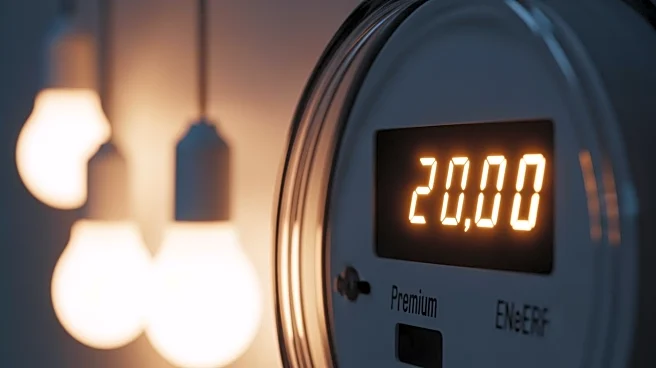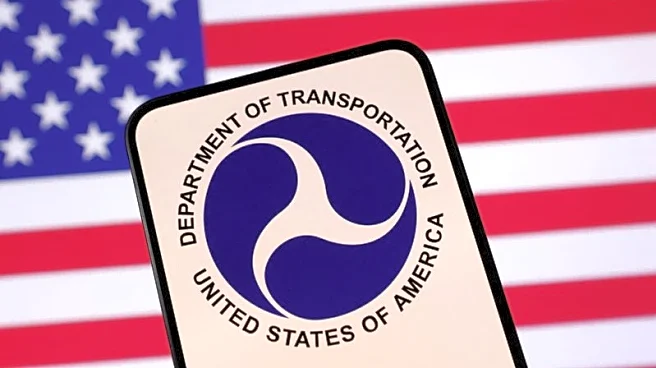What's Happening?
The government is contemplating removing VAT from energy bills as part of its cost-of-living support measures. This initiative could potentially reduce annual energy bills by approximately £80. Despite
this, energy prices remain high, and the energy price cap is set to increase slightly in the new year due to government policy costs and operating expenses. The regulator Ofgem has announced a 0.2% increase in the price cap, affecting households on variable tariffs in England, Wales, and Scotland. This decision comes as temperatures drop, bringing energy costs to the forefront of public concern. Additionally, Ofgem plans to ensure energy companies write off some of the record £4.4 billion in unpaid bills, with up to £500 million potentially being deducted from the total debt.
Why It's Important?
The potential removal of VAT from energy bills could provide significant relief to households facing high energy costs, especially during the winter months. The increase in the energy price cap highlights the ongoing financial burden on consumers, driven by government policies and the costs associated with transitioning to a low-carbon energy system. The move to write off unpaid bills could alleviate financial stress for many families struggling to pay for essential energy needs. These developments underscore the need for sustainable energy policies that balance affordability with the transition to cleaner energy sources.
What's Next?
The government is expected to announce further cost-of-living support measures in the upcoming Budget. If VAT removal is implemented, it could offer immediate financial relief to consumers. However, the long-term implications of government policies on energy costs remain a concern, with potential further increases in April due to network and net-zero transition costs. Stakeholders, including energy suppliers and consumer advocacy groups, will likely continue to push for measures that ensure energy affordability while supporting the transition to a sustainable energy system.
Beyond the Headlines
The discussion around energy costs and VAT removal highlights broader issues related to energy security and the transition to a low-carbon economy. While reducing VAT may offer short-term relief, the underlying costs of maintaining and upgrading energy infrastructure remain. The debate over net-zero policies and their impact on energy affordability reflects the challenges of balancing environmental goals with economic realities. As the energy sector evolves, stakeholders must navigate these complexities to ensure both sustainability and affordability for consumers.










